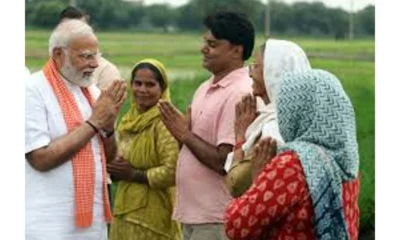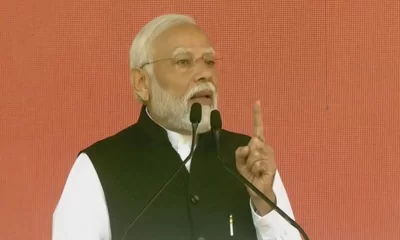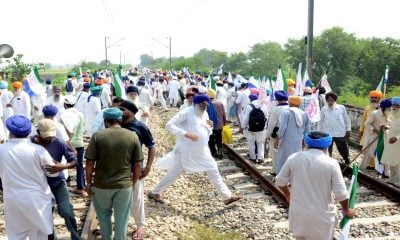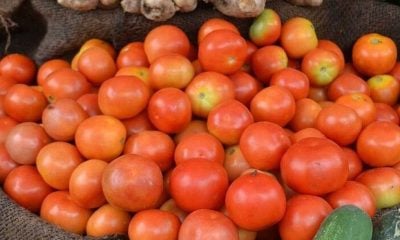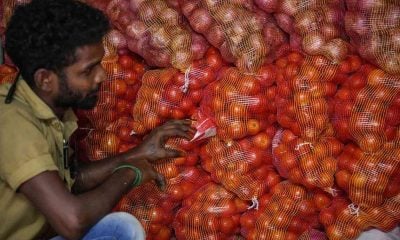City dwellers in north Indian states had better stock up on supplies of vegetables, milk, etc, for these may be in short supply, if not simply unavailable, from June 1 (Friday) for the next 10 days.
Adopting a new form of protest to highlight their issues and press for their demands, farmers have decided to observe a ‘Gaon Bandh Mahotsav’, a 10-day shutdown of villages beginning June 1, during which they will neither supply farm and village produce to cities, nor buy anything from cities. They will not go to mandis and sell their produce themselves in village itself. City dwellers can go and buy farm produce from villages if they want.
It is a protest that effectively portrays the divide between the rural India and urban India and accentuates the importance given to cities and city dwellers over the villages and villagers.
“It is not a strike as such,” said the coordinator of Kisan Ekta Manch Devinder Sharma, “the farmers are simply taking a holiday like others do – why can’t farmers take a holiday?” He said the Gaon bandh will be held in all states of north and central India.
The issues the farmers are pressing for are minimum assured income of Rs.18,000 per month for every agriculturist’s family, implementation of Swaminathan Commission’s report, a price for their produce that gives them 50% more than the total weighted cost of production and waiver of all loans.
Several farmers’ organisation of different states have come together for this agitation on the calll of Rashtriya Kisan Mahasangh, an umbrella body of over 100 farmers organisations.
Farmers are enthused over this new form of agitation and are more confident over its prospects as they see this as more effective than dharnas and rallies which they used to resort to till now.
Farmer leaders said the villages would not supply anything to cities nor go to cities to buy anything. If the city dwellers need to buy vegetables or milk or any farm produce, they would have to go to the villages, they said.
The farmers have made plans to make good use of all produce that cannot be stocked for over 10 days.
A report in The Times of India quoted a farmer leader from Harda district of Madhya Pradesh: “There are over one lakh farmers in our district, and almost all of us will be participating in this protest. For us, the fact that our produce now fetches only half the price we expected is a bigger problem that planning what to do for 10 days, when we will be boycotting the urban mandis. We have a number of diary farms, and the plan is to make ghee, khoa and mava. There is a big demand for ghee these days. We will also allow calves to drink from the cows, which we usually do not allow. We also plan on barter – dairy farmers will offer milk in return for vegetables from people who grow vegetables. We usually sell our best produce and eat what we think is inferior. We look forward now to keeping the best produce for ourselves.”
A farmer from Punjab was quoted as saying: “We are planning to set up haats in rural areas, so that produce can be sold without going to mandis in urban centres. For milk, we plan to make ghee. We will also increase free distribution of milk to orphanages and other centres in that time. Our plan is not to sell produce in urban centres, and not to buy anything either from the cities.”
The plan for this form of agitation was announced on April 30 when farmers from across the country representing over 100 farmer organizations had gathered in Delhi. Former BJP Union minister Yashwant Sinha too is part of this programme.


 India News3 hours ago
India News3 hours ago
 LATEST SPORTS NEWS2 hours ago
LATEST SPORTS NEWS2 hours ago
 India News2 hours ago
India News2 hours ago
 India News2 hours ago
India News2 hours ago


